Graham Reid | | 7 min read
Paul McCartney and Wings: Picasso's Last Words
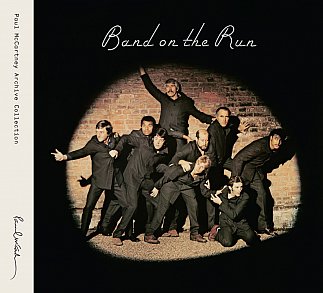
It's sad in a way, but great albums
often are a result of bad situations: death, divorce, betrayal,
litigation and debilitating substance abuse seem to make for better and more interesting music than cheery times with the family on holiday.
Think about it: Neil Young's Tonight's
the Night (death, drugs); John Martyn's Grace and Danger (divorce,
drink); Marvin Gaye's Here My Dear and In Our Lifetime (divorces,
drugs); John Lennon's Plastic Ono Band (all of the above and more) .
. .
Paul McCartney – whose life has been
alarmingly blessed, aside from the Heather debacle – doesn't seem
like a man who has suffered for his art, but his breakthrough album
Band on the Run of '73 was a battle against the odds. Maybe that was
the kick along he needed, rather than domestic bliss with Linda.
Its predecessors were his McCartney
solo debut of 1970 in which he announced his departure from the
Beatles forever and was largely a lowkey clearing house for mostly
half-finished ideas lying around. Then came the infinitely more
interesting and credible Ram (an Essential Elsewhere album which even
now still stands up), the less interesting Wild Life (with his new
band Wings) and the patchy Red Rose Speedway which felt like a
stop-gap at the time but on reflection pointed a direction.
So by mid 73, despite some hit singles
(notably My Love and Live and Let Die), McCartney was looking like a
man conspicuously failing to keep up the high standard he set himself
in his former band, to which he was always going to be compared,
unfavourably.
Deciding to record his next album in an
EMI studio outside of England he chose Lagos, but before they were
due to leave drummer Denny Seiwell and guitarist Henry McCullough
both quit . . . so McCartney, wife Linda, loyal guitarist Denny Laine
and Beatles engineer Geoff Emerick went to Lagos (where there had
been a cholera outbreak) and discovered the studio was so primitive
it didn't have a vocal booth.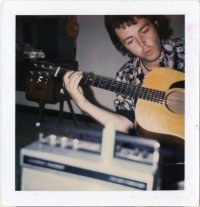
“I mean it's funny out there,” said
McCartney recently, “Africa you know, the politics. It's obviously
not as up to date as London or New York or anywhere in our world
really. They make great music but they're not as technologically
advanced and they weren't then as technologically savvy as we were.
“We expected it to be a proper EMI
studio. But in fact we said, ‘Okay, where are the vocal booths? We
want to go do the vocals.’ And the guy sort of looked at me blank.
He said, ‘Vocal what?’ We said, ‘Yeah. You know, those little
wooden boxes with the glass in 'em and that? Where you go, you put a
mic in.’
“Oh no. They didn't have vocal
booths. So we had to say, ‘Okay, well here's what it is. You take
bits of wood and you make a big box and we gave him the dimensions.
Then you put windows in. You know, you need to seal it up. Stick a
little roof on it, a little door and that's a vocal booth.’
“So they did spend a little bit of
time building them. You know, we'd come in the morning. Tink, tink,
tink, putting the Plexiglas in. But we got it done. I think in a way
the kind of vibe of it all being a little bit homemade found its way
into our attitude.”
Local legend Fela Kuti also accused
McCartney of coming to Nigeria to rip off African musicians, then one
night they were mugged an all McCartney's demo tapes were stolen.
“And, of course, they wouldn't
realize that there was any value in them or they were of any use to
anyone. I'm sure they just either recorded over them or just chucked
'em or sold 'em as blank cassettes.
“So that meant that I then had to
remember the album. And that was okay. 'Cause that was kind of a rule
John and I had always had, 'cause we didn't have cassettes or any
recording devices then. And we always had to remember stuff.
“We used to say, if you can't
remember it, how will the people remember it.”
Yet out of all this – and of course
subsequent sessions back in London – McCartney pulled out the first
great solo album of his career, created a platform for Wings (“only
the band the Beatles could have been” according to Alan Partridge),
and he became a genuine solo artist with a stadium-filling catalogue
that didn't require he dip into his past.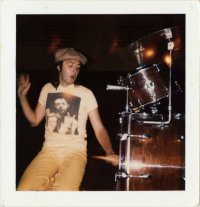
“My big aim after
The Beatles, once we decided to put a band together, was to do
something different, but successful. And that was difficult. 'Cause
all those years I'd been training Beatle style. And I didn't want to
just continue the same thing.
“So I had to kind of avoid anything that sounded too Beatley and make a new style, which was to become the Wings’ style. So by the time we did Band on the Run I felt we'd got it.
"We'd really established something that
wasn't like the Beatles at all. It had echoes maybe inevitably, you
know, because it was me. But it had established its own style.
“Years and years later I was doing an interview with some guy, I think he was from Rolling Stone. We were talking about Sgt. Peppers Lonely Hearts Club Band, and he says, ‘My Sgt. Pepper's was Band on the Run.’
"And
for his generation it was as important, so that really made me feel
good, because that's what I've been trying to do, establish something
that was as important as The Beatles were, for someone like him.”
Band on the Run – initially
attributed to Wings, then on reissue Paul McCartney and Wings – has
now been remastered by many of the same team who did the impressive
Beatles remasters released last year, and is the first in a reissue
of all McCartney solo albums remastered as the Paul McCartney Archive
Collection.
Band on the Run now arrives in a
variety of formats originating with the single disc digitally
remastered, essential 9-track standard edition.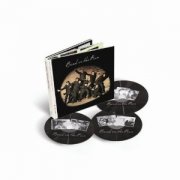
The three-disc (2CD, 1 DVD) special edition features nine bonus audio tracks (including the hit single Helen Wheels), rare footage of the McCartneys in Lagos and behind-the-scenes at the famous album cover shoot, and the original Band on the Run promotional video clips as well as some terrific studio footage and some previously unreleased songs.
It also includes music from the One Hand Clapping television special (highlighted by studio performances filmed at Abbey Road in 1974).
This is all with enhanced packaging and
featuring new liner notes by Paul Gambaccini.
Collectors can go for the four-disc
(3CD, 1 DVD) deluxe edition which adds a 120-page
hard bound book containing many unseen and unpublished photos by
Linda McCartney and Clive Arrowsmith, album and single artwork,
downloadable hi-res audio versions of the remastered album and bonus
audio tracks, a full history of the album complete with a new
McCartney and expanded track by track information for all four discs.
The deluxe edition
also includes a special Band on the Run
audio documentary (originally produced for the 25th Anniversary
edition) and both standard and deluxe versions will be available
digitally.
The original
remastered album and bonus audio content will also be issued in a 2
disc 180gm audiophile vinyl edition that comes with an MP3 download
of all 18 tracks.
Whew!
But . . .
repackaging/remastering aside, does the music stand up almost
four decades on?
Certainly: the increasingly urgent,
autobiographical title-track opener sets the tone picked up in Jet –
one of his best rockers – as an impressive double-whammy. Jet is
lightly echoed towards the end in the slightly woozy and beautifully
orchestrated Picasso's Last Words, and the album closes with a Band
reprise which gives it a loosely conceptual feel.
Picasso's Last Words shows McCartney's
casual craftsmanship. It was written after Dustin Hoffman asked him
to pen something using Picasso's last words (allegedly, “drink to
me, drink to my health”).
Let Me Roll It, a standout, is closer
to Lennon's edgy Cold Turkey and the pop-smart Mrs Vanderbilt (also
echoed in Picasso) was, improbably, voted the most popular McCartney
song by Ukrainians in 2008. Mamunia is a typical McCartney
make-weight however, but the breezy Bluebird adds breathing space.
It isn't a concept album although feels
like one – and the “concept” was so good McCartney tried to
replicate it – with diminished musical returns – on Venus and
Mars two years later, which sold anyway because he was on a high with
Wings and touring heavily.
Band on the Run sold seven million on
release and Jon Landau in Rolling Stone said it was “the
finest record yet released by any of the four musicians who were once
called The Beatles.”
Maybe if McCartney had endured a rougher ride in the following decades we might have had more albums like Band on the Run, a triumph against the odds.
For an overview of Paul McCartney's albums in the Seventies go here.
For an overview of McCartney and Wings go here.
There are numerous other articles on McCartney here.
And here is a film of McCartney talking about the Band on the Run remaster/reissue.

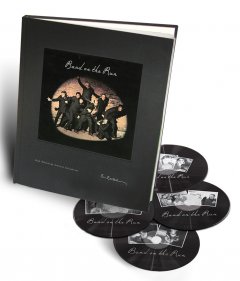
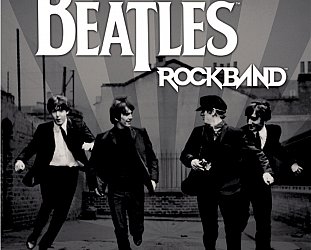
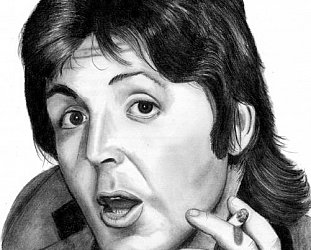


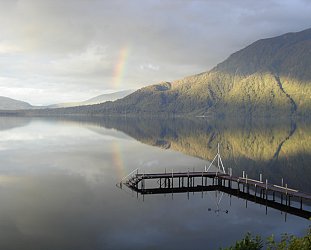

post a comment